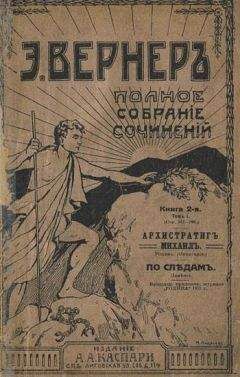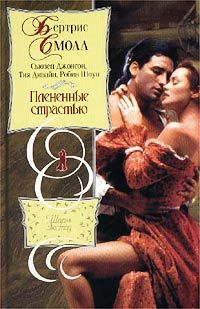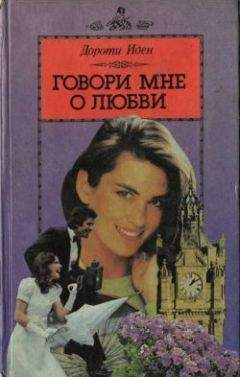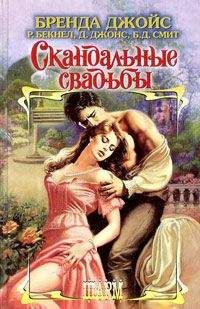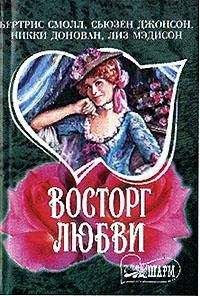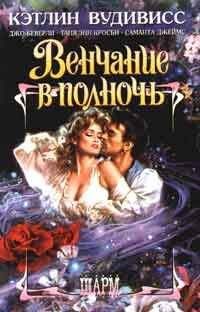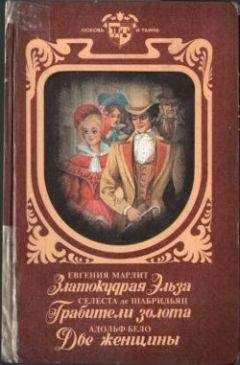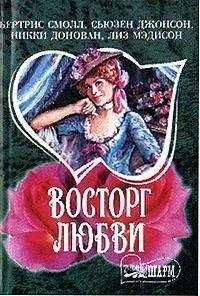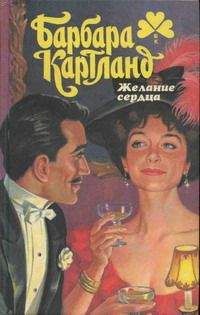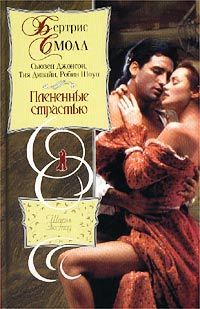Anna Godbersen - Envy

Скачивание начинается... Если скачивание не началось автоматически, пожалуйста нажмите на эту ссылку.
Жалоба
Напишите нам, и мы в срочном порядке примем меры.
Описание книги "Envy"
Описание и краткое содержание "Envy" читать бесплатно онлайн.
Jealous whispers.
Old rivalries.
New betrayals.
Two months after Elizabeth Holland's dramatic homecoming, Manhattan eagerly awaits her return to the pinnacle of society. When Elizabeth refuses to rejoin her sister Diana's side, however, those watching New York's favorite family begin to suspect that all is not as it seems behind the stately doors of No. 17 Gramercy Park South.
Farther uptown, Henry and Penelope Schoonmaker are the city's most celebrated couple. But despite the glittering diamond ring on Penelope's finger, the newlyweds share little more than scorn for each other. And while the newspapers call Penelope's social-climbing best friend, Carolina Broad, an heiress, her fortune — and her fame — are anything but secure, especially now that one of society's darlings is slipping tales to the eager press.
In this next thrilling installment of Anna Godbersen's bestselling Luxe series, Manhattan's most envied residents appear to have everything they desire: Wealth. Beauty. Happiness. But sometimes the most practiced smiles hide the most scandalous secrets. .
— FROM CITÉ CHATTER, FRIDAY, FEBRUARY 9, 1900
A FIRE HUMMED IN THE DRAWING ROOM OF THE town house at No. 17 Gramercy Park South, which had provided shelter to three generations of the Holland family. It was easy to hear the snapping of kindling in the flames, because the occupants of that room were uncommonly quiet. They had settled into three of the several somewhat-the-worse-for-wear bergère chairs — which were arranged across the room at seemingly random distances from the hearth — after breakfast. Mrs. Holland sat closest to the warmth in her black crepe dress with the high neck and narrow-buttoned wrists; her elder child, Elizabeth, sat not far off. A book was open in the girl’s lap, but she did not read. Snowden Trapp Cairns, who had been a business associate of the late Mr. Edward Holland and who had so often lately made himself their savior, lounged to her right. A portrait of Elizabeth’s father peered down at them from above the fireplace, with an expression perhaps more skeptical than sage.
“It looks strange that you weren’t in attendance at Mr. Bouchard’s last night.” Mrs. Holland did not look up when she spoke, and the lines around her mouth grew taut. She had been reading the morning papers with her usual fierce attention. Diana had been at the ball — she’d returned after Elizabeth had gone to bed and had not as yet emerged from her room. Their aunt Edith, who had chaperoned, hadn’t yet made an appearance in the parlor that morning, either. “It would have been a lovely evening, and you might have danced some. Anyway, your sister cannot represent this family alone.”
Elizabeth’s gaze rose slowly from the flames to her mother, who still held the folded broadsheet in her hand. In contrast to the orange hearth, she looked almost blue in that light of early day. Elizabeth opened her mouth, although not to speak. She knew that she had done the older lady much harm, for Mrs. Holland, who was born Louisa Gansevoort, had been a stern social arbiter before the series of tragedies that had begun to befall their family over a year ago. They had lost their patriarch and then their money, and soon after that Elizabeth had followed her heart — which had not been easy, given her impeccable training as a debutante — and run away with her father’s former valet. When she closed her eyes she could almost feel her face against Will’s clean, bare skin.
“The Henry Schoonmakers would have been there, and you could have silenced everyone who wonders if you’re sour about the match by seeming glad to see them for just a few moments,” her mother continued.
Elizabeth put her hands into the lap of her off-white, thick cotton dress with its vertical navy stripes. The dress was narrow at the waist, but ballooned in the torso and the hips and in the arms, enveloping her small frame. She blinked, for these days tears were never far away, and silently wished that she could obey her mother. It would be so simple, and it would make the lady so happy. But Elizabeth had never felt a stronger instinct than the one that insisted she stay in the house, that she never go out, that she never again appear pretty or gay.
It was her fault that Will had died, because he had been shot — suddenly, repeatedly, in a fusillade that caused the most horrendous sound she would ever hear on this earth — by men who thought they were protecting her. They would not have cared to protect her if they had not believed the illusion she had so carefully constructed: that she was a perfect, virginal society girl, possessed of impeccable manners and lavish gowns, and not in the least capable of leaving New York of her own volition, in pursuit of a coachman. She lowered her eyes, chastised but still silent.
“Perhaps it’s too soon. After all, the events of New Year’s Eve…”
Elizabeth turned toward Snowden, whom she was surprised to hear speak in contradiction of Mrs. Holland. Then again, he was the one who had married Will and Elizabeth, a few days before Will’s death, in the room across the hall, where the Hollands used to have parties, when they still did such things. Oh, to be a widow at eighteen…but Elizabeth could not think that way, for it was self-pitying, and she had other atonements to make.
Mrs. Holland leaned forward and dropped the newspaper into the flames. Only when it shrank to ash did she let her obsidian eyes meet Snowden’s.
“Perhaps you are right.” Elizabeth’s mother spoke in a clipped manner and went on looking into the eyes of her guest. She did not, however, marshal the full coldness that had famously been her response to anyone who caused her displeasure. But then, she could not have, even if she’d wanted to, as Elizabeth well knew, for Snowden had been very generous with them at a time when their inherited wealth had dwindled to nothing, and their bills had begun piling up. “But it is not her readiness that matters most, I am afraid. It is society, and what everyone will say. What they are already beginning to say. Unfortunately, the truth is not on our side, and we must be ever mindful of appearances.”
“Elizabeth is very delicate now,” Snowden returned without pause. “I’m sorry to say it is quite evident.”
The girl in question glanced from her mother to Snowden, and saw that there was kindness in his simple, blocklike features. His eyes, which were set far apart under thick brows, and which were never quite brown or green, widened in her direction. He wore a shirt of sturdy white linen, and a vest of worn brown leather. It was his uniform of sorts. He was right, of course: She’d hardly had an appetite since Will’s death, and had trouble keeping down the meals she did eat. She had grown gaunt, and forgot to care for her hair, which nowadays often had the limp look of having gone unwashed.
“And,” he went on, “it would be doing none of the family any favors for her state, or the reasons for it, to be publicly speculated on. If you fear people saying that something untoward befell our girl between October and December past, her frailty might only seem to confirm that.”
Elizabeth’s smile was not what it used to be — in her days as a much-discussed debutante, she had been known for the radiant genuineness with which she had greeted her friends and peers, but that was a facial expression she could scarcely dream of now. Still, she tried to smile a little then. He was making the argument she might have made, if only she felt up to the task. She let her thin eyelids drift shut for a moment, and then she was back in California. Her body was warmed by the sun and close to Will’s and she was almost blinded by that light, which was so clear and direct in a way she could never have imagined in New York, where the sun set at five in the winter and the walls were all stained with the residue of oil lamps. When she opened her eyes, she was again in that cluttered dark room, with its embossed olive leather paneling and carved, stained wood ceiling, with its many antique pieces.
Mrs. Holland’s small, determined chin twitched in Elizabeth’s direction. She drew her long fingers over her forehead and then rested her temple against her fingertips. She thought a moment, and then asked, “What do you suggest, then? That she stay indoors forever, like a prisoner of this house, as though she were some deaf mute who could not understand the world? And then what should I say to my friends, who were once merely happy that she was alive and now wonder suspiciously at our shielding her?” She paused and brought her hand down swiftly to her lap. “Those friends I have left,” she added darkly.
Snowden stood and answered in the inverse tone. “I think I know what to do.” He moved to the fireplace, the light from the flames catching his preternaturally blond hair, and made swooping gestures with his hands. “We should have a party here, at home, where Elizabeth is most comfortable.” He paused thoughtfully. “Not a dance. A luncheon. Quiet, lovely, during the daylight hours. We can invite all the people Elizabeth used to know. The young ladies that she was friends with. Not too many, but enough to spread the word that she is quite all right and will be back in the world once the winter is over and she has begun to feel normal again.” He turned to Elizabeth. “For surely, she will be normal by then?”
That remnant of a smile that had just crossed Elizabeth’s lips disappeared now. She looked from Snowden to her mother, and saw that his plan was already in motion in that lady’s thoughts. There was nothing to say, for Agnes Jones, and the Misses Wetmore, and her Holland and Gansevoort cousins were already as good as invited. They would arrive in the latest creations of their dressmakers, and would all be peering slantwise at Elizabeth to see if their clothing was better than hers. She was queasy with the idea of the pretense — all the greetings and superficial conversation that she would be forced to engage in. She would have to fasten a corset and dress like it mattered.
A log in the fire, burned through the middle, broke and fell then, scattering embers onto the stone hearth. Snowden moved to stamp them out, and Elizabeth put her face into her hands, knowing that she was far more than a few cold months away from normal.
Five
I hear that among the younger generation couples sometimes maintain but one large bedroom for husband and wife. I suppose that this is the hallmark of an intelligent use of space, and after all, the species must be propagated. Still, I prefer the older people’s way of doing things: two well-appointed bedrooms, one each for husband and wife, an arrangement that prevents the revelation of so many irksome personal facts….”
— VAN KAMP’S GUIDE TO HOUSEKEEPING FOR LADIES OF HIGH SOCIETY, 1899 EDITION
THE HILLS WERE THE INTENSE GREEN COLOR nature reserves for that hour directly following a heavy rain, and the horse beneath Henry Schoonmaker moved so speedily into the damp air that he felt a little dizzy with the pace. Up ahead of him, Diana Holland — her shiny russet curls half undone and whipping against her shoulders — turned her face slightly back to make sure he followed. She was wearing a white gown that reminded him of some Grecian statue in the Metropolitan Museum, and her small body rocked with the galloping of the huge, shiny animal. He turned his gaze down to urge his own horse, already sweaty with exertion, faster, and then, as he brought his face up again to look at her, he felt the rough texture of kilim against his cheek, and remembered the pillows on the couch that he had slept on ever since he had become a married man, and which Penelope’s tastemaker, Isaac Phillips Buck, had picked up on some cruise through the Dardanelles.
“Henry!”
For a moment, Henry’s addled brain couldn’t distinguish what was dream and what was reality, although he held out a poignant hope that the scene with the verdant hills, the racing horses, and the youngest Holland was the one that would soon come into sharper focus. He dragged his face down, away from the harsh voice of his father, and felt again the scratchiness of the pillow against his smooth, golden skin. The feel of those imported Turkish fibers was undeniably more acute than the moist countryside air, which was in any event fading quickly, and there was nothing he could do to stop it.
“Henry.”
Henry now twisted the entirety of his long body so that he was sitting up, and then committed the first mistake of that morning: He opened his eyes, an act that caused him great pain when the flooding morning light met his weary retinas.
“Oh,” he said feebly.
“Yes, it hurts, I know,” his father replied, sitting on the couch next to his son. William Sackhouse Schoonmaker was a man of considerable size, broad-shouldered and full in every way, but whether his body or the sarcasm of his tone weighed more heavily on those soft black leather cushions was open for debate. He wore a suit of dark brown that shone almost purple where the light caught it, and his hair was a deep and artificial black. His face was a study in blunt features and popped blood vessels, but you could see under all that the bone structure that he had bequeathed his son. He had the appearance, now as ever, of being a very rich man. “But what are you doing here?”
“Here?” Henry’s tone was dull, he knew, but he lacked the energy to change it. Unlike his father he was still lithe, his features still strong and clean as though they had been carved from marble, but his insides were feeling decidedly crumbly. The room they occupied was adjacent to his bedroom, in the second-floor wing that had always been largely his own. When he was a child his governess had slept here, and when he had dropped out of Harvard last spring it had been converted into a study of sorts for him — he had claimed, halfheartedly, that he might resume his studies at Columbia, where his friend Teddy Cutting had then been a senior. The floor was highly varnished parquet, and on the ceiling was a mural depicting a happy luncheon on the grass in big, loose brushstrokes. His gaze lingered there for a moment, and he was overtaken by a very childish thought: that he could jump in there and amble away.
His father, intuiting the gist of his fantasy, cut in. “Stop thinking like a little boy, Henry,” he said.
“All right.” Henry, who still could not manage any tone beyond a passive acquiescence, closed his eyes after he spoke. His tongue felt like some swollen fish dying on a rock. Then came the recollection of the drinks that had filled the previous evening and made it blurry and tolerable. Before all that — or at least before the peak of his intoxication — there had been Diana, to whom he had tried to be near over and again since his wedding, without the slightest success. It had only been a glimpse of her, for as soon as he had entered the music room at Leland Bouchard’s, she had exited. She’d looked as healthy and rosy as any sixteen-year-old, but with that sharp pride of a woman who has been scorned and then drawn herself up, ever more glorious, from the humiliation.
“Now, what are you doing here?”
Henry’s hands went to his chest. His memory of how he had arrived on this couch this particular morning was incomplete, and he had gotten in the habit on mornings like these (there had been many) of patting himself down to make sure he was all in one piece. He seemed to be. He also seemed to be wearing a rumpled white dress shirt of Italian linen — the same one, as far as he could determine, that he had worn the night before — and black dress pants. His feet were covered in black socks, and his shoes were lying next to his white silk waistcoat on the floor. His tie was nowhere to be seen.
“Sleeping?”
“Evidently.”
Henry stood. “It was a long night,” he replied, sounding — with exactly no effort — like he could sleep for another hundred years. He bent to pick up his waistcoat, and regretted it instantly. The swift movement had caused a kind of stabbing agony around his forehead. He brought himself up quickly, and drew on what energy he had to remain upright.
The elder Schoonmaker stood, cleared his throat, and softened his tone. “Henry…” He looked at his son, and for a moment his thoughts seemed to have gone to some place in the distant past. They stood awkwardly there, in that paneled and ornamented room, shifting in their places. “There’s been a promising development in my quest for the mayoralty.”
Подписывайтесь на наши страницы в социальных сетях.
Будьте в курсе последних книжных новинок, комментируйте, обсуждайте. Мы ждём Вас!
Похожие книги на "Envy"
Книги похожие на "Envy" читать онлайн или скачать бесплатно полные версии.
Мы рекомендуем Вам зарегистрироваться либо войти на сайт под своим именем.
Отзывы о "Anna Godbersen - Envy"
Отзывы читателей о книге "Envy", комментарии и мнения людей о произведении.





